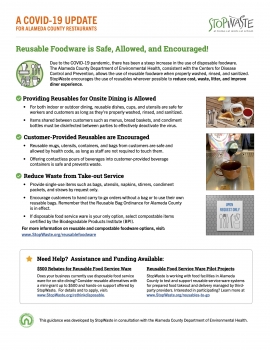You are here
Monthly Topic Briefs
Updates on current issues and projects.

In 2017, StopWaste began working with the Alameda County Resource Conservation District and later additional partners (The Natural Resource Conservation Service and UC Merced) to add to the body of knowledge on how carbon farming can fight climate change through the application of compost on range lands.

Historically, residents in multifamily buildings have faced barriers to improving their homes. In many cases, buildings are not maintained, and retrofits are long overdue. To address this challenge, StopWaste is working with local partners to implement energy efficiency projects in multifamily properties that also improve resident comfort, safety and health.
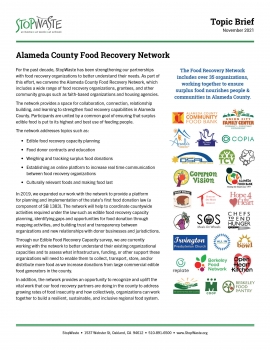
For the past decade, StopWaste has been strengthening our partnerships with food recovery organizations to better understand their needs. As part of this effort, we convene the Alameda County Food Recovery Network, which includes a wide range of food recovery organizations, grantees, and other community groups such as faith-based organizations and housing agencies.

A great place to look for water savings year round is outdoors in the landscape. If you’re ready to move on from having a water-thirsty lawn, try sheet mulching for the least expensive and most effective way to convert your lawn to a garden.
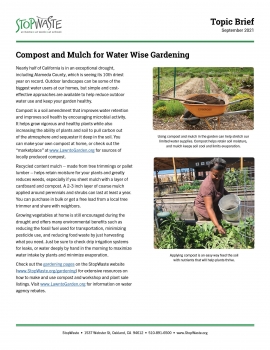
Nearly half of California is in an exceptional drought, including Alameda County, which is seeing its 10th driest year on record. Outdoor landscapes can be some of the biggest water users at our homes, but simple and cost-effective approaches are available to help reduce outdoor water use and keep your garden healthy.

Each year, StopWaste awards local nonprofit and businesses grant funding for projects focused on repair, reuse, food waste prevention, and food donation equipment. The program engages businesses and community-based organizations to reduce waste in Alameda County while helping to address some of the County’s most pressing environmental and equity issues.

Medicine and prescription drugs play a critical role in our lives, but unfortunately, many consumers are unfamiliar with the proper way to discard leftover or old prescriptions. Medications and prescription drugs should not be put in the trash, recycling, or compost bin, nor flushed or poured down the drain.
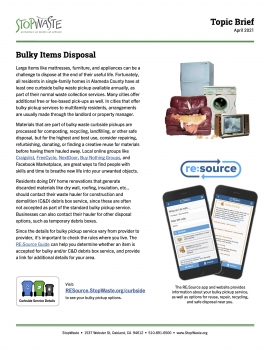
Large items like mattresses, furniture, and appliances can be a challenge to dispose at the end of their useful life. Fortunately, all residents in single-family homes in Alameda County have at least one curbside bulky waste pickup available annually, as part of their normal waste collection services.
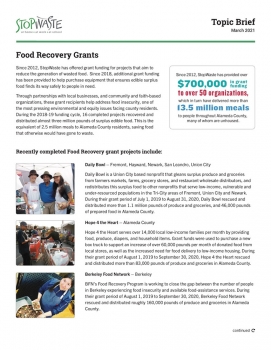
Since 2012, StopWaste has offered grant funding for projects that aim to reduce the generation of wasted food. Since 2018, additional grant funding has been provided to help purchase equipment that ensures edible surplus food finds its way safely to people in need.
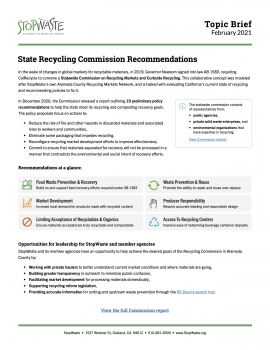
In the wake of changes in global markets for recyclable materials, in 2019, Governor Newsom signed into law AB 1583, requiring CalRecycle to convene a Statewide Commission on Recycling Markets and Curbside Recycling.
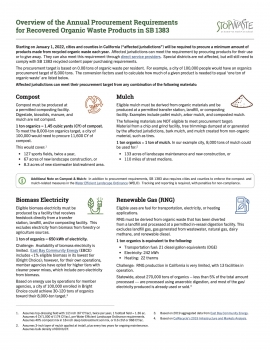
Starting on January 1, 2022, cities and counties in California will be required to procure a minimum amount of products made from recycled organic waste each year. Affected jurisdictions can meet the requirement by procuring products for their use or to give away.
